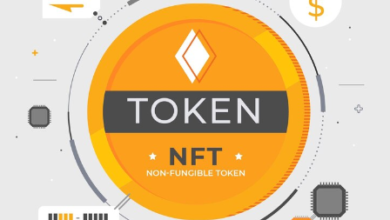Cryptocurrency Wallets: Types, Security, and Best Practices

Cryptocurrency wallets are crucial in the fast-evolving world of cryptocurrencies. These wallets facilitate the storage, transmission, and receipt of digital assets such as Bitcoin and Cardano. However, choosing the right wallet and implementing best security practices are crucial. Let’s explore the types of wallets, the importance of security, and best practices for safeguarding your digital assets.
1. Types of Cryptocurrency Wallets
Cryptocurrency wallets can generally be categorized into several types based on how they operate and store user’s private keys. Here are the most common types:
Type 1. Hardware Wallets:
Hardware wallets are tangible tools for the secure safekeeping of cryptocurrencies. They are seen as exceptionally secure since they maintain private keys offline. They typically look like USB drives and require physical confirmation for transactions.
Type 2. Software Wallets:
- Desktop Wallets:
Desktop Wallets are software programs that you can download and set up on your personal computer. They provide more security than online wallets, but if your computer is compromised, it may still be vulnerable to malware or hacking.
- Mobile Wallets:
These mobile apps enable users to conveniently oversee their digital currencies while on the move. Mobile wallets are convenient but could be less secure than desktop wallets due to potential security vulnerabilities in mobile operating systems.
- Online Wallets (Web Wallets):
These wallets run on cloud-based platforms and can be accessed from any device with an internet connection. While they are convenient, online wallets are generally considered less secure because a third party holds the private keys.
Type 3. Paper Wallets:
A paper wallet is created by printing the public and private keys onto a physical sheet, ensuring security against online threats. Despite its offline nature, paper wallets demand careful management to avoid loss or harm.
Type 4. Multi sig Wallets:
Multiple signature wallets use several private keys to authorize a transaction. By spreading control among numerous users, it enhances security with an additional layer of protection.
2. Security Considerations
Security is critical in managing cryptocurrency wallets. Here are key security considerations:
- Private Key Management:
The private key is the most crucial piece of information for accessing and controlling your cryptocurrency. Protect your private key by not sharing it with anyone and storing it safely.
- Backup Your Wallet:
Make sure that you regularly back up your wallet data or seed phrase. By keeping this backup, you can restore your funds if your wallet is misplaced or damaged.
- Use Strong Passwords:
Use complex passwords for your wallet and enable two-factor authentication (2FA) wherever possible.
- Keep Software Updated:
To protect against vulnerabilities, ensure that your wallet software and any associated apps are kept up to date.
- Beware of Phishing Scams:
Be cautious of emails, messages, or websites asking for your wallet details. Make sure to validate the source’s authenticity prior to providing any information.
- Secure Your Devices:
Use reputable antivirus software to keep your computer, smartphone, or hardware wallet device free from malware.
- Diversify Storage:
Explore diversifying your storage by distributing your funds across various wallet types to enhance security.
3. Best Practices for Secure Cryptocurrency Wallet Use
Adopting best practices can significantly enhance the security of your cryptocurrency holdings. Here are some recommendations:
- Research Before Choosing a Wallet:
Thoroughly research and choose a reputable wallet provider based on your needs and preferences.
- Start with Small Amounts:
When getting started with a new wallet, transfer small amounts of cryptocurrency to test the wallet’s functionality and security.
- Regularly Update Security Measures:
Stay updated with the latest security practices and technology advancements in the cryptocurrency space.
- Use Cold Storage for Long-Term Holdings:
For large amounts of cryptocurrency that you don’t plan to use frequently, consider using a hardware wallet or paper wallet for offline storage.
- Educate Yourself:
Regularly learn about the developing security threats and optimal strategies used in the cryptocurrency domain.
- Monitor Your Accounts:
Regularly monitor your wallet and account activity for unauthorized transactions or suspicious activities.
- Plan for Contingencies:
Have a plan for what to do in case your wallet or hardware device is stolen, lost, or damaged.
4. Additional Considerations for Cryptocurrency Wallet Security
- Utilize Hierarchical Deterministic (HD) Wallets:
HD wallets generate a sequence of public and private key pairs from a single seed phrase. This simplifies backup procedures and enhances security by reducing the need to store multiple private keys.
- Consider Open Source Wallets:
Open source wallets allow for greater transparency and community scrutiny of the wallet’s code, potentially reducing the risk of hidden vulnerabilities or backdoors.
- Explore Decentralized Finance (DeFi) Wallets:
DeFi wallets integrate with decentralized finance platforms, offering advanced features like staking, lending, and yield farming. However, ensure thorough research on the security practices of these platforms before using them.
5. Advanced Security Measures
- Cold Storage Methods:
Cold Storage with Multisig: Employ multisig setups for cold storage wallets to require multiple transaction signatures, increasing security against single-point vulnerabilities.
- Use of Hardware Security Modules (HSM):
For enterprise-level security, consider utilizing HSMs to manage private keys securely in a hardware environment.
6. Privacy Considerations:
- Use Privacy-Centric Wallets:
Some wallets offer enhanced privacy features, such as coin mixing or stealth addresses, which can help obscure transaction details.
- Avoid Reusing Addresses:
Generating a new address for each transaction enhances privacy by preventing linking multiple transactions to one address.
7. Regulatory Compliance
Understand Regulatory Requirements:
Depending on your jurisdiction, certain regulatory obligations may apply to cryptocurrency wallet usage, such as KYC (Know Your Customer) and AML (Anti-Money Laundering) policies. Educate yourself on applicable cryptocurrency regulations to ensure compliance.
Conclusion
Cryptocurrency wallets are fundamental tools for managing digital assets, and understanding their types and security implications is crucial for anyone involved in cryptocurrencies. By selecting the right type of wallet and implementing robust security practices, users can significantly mitigate risks and safeguard their funds against potential threats. It’s crucial to understand that the security of your cryptocurrency investments relies heavily on how diligently you enforce and stay ahead with security measures. Stay in the loop, prioritize safety, and experience the advantages of engaging responsibly in the fascinating realm of cryptocurrencies.
Explore more insights about cryptocurrencies at www.intogeeks.com.




